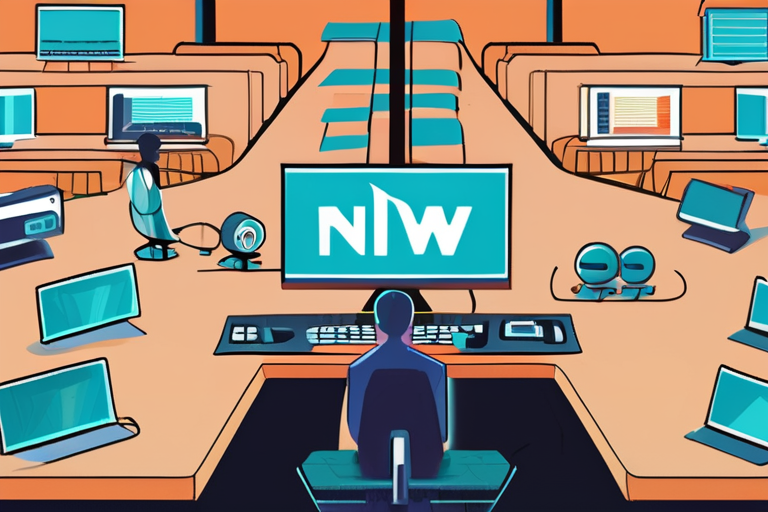Logitech CEO Hanneke Faber Sees AI-Powered Board Members as the Future of Corporate Governance
In a bold move that reflects the rapidly evolving landscape of artificial intelligence (AI) in business, Logitech CEO Hanneke Faber has expressed her willingness to consider an AI-powered board member. This development comes at a time when companies are under increasing pressure to adapt to changing market conditions and regulatory requirements.
Financial Impact:
Logitech's revenue growth has been steady over the past few years, with a 10% increase in sales to $4.5 billion in 2022. However, the company faces stiff competition in the tech manufacturing sector, where margins are thin and innovation is key. Faber's proposal to incorporate AI into board decision-making may be seen as a strategic move to stay ahead of the curve.
Company Background:
Logitech, a Swiss-based technology firm, has been at the forefront of innovation in the consumer electronics space for over three decades. With a portfolio that includes popular brands such as Logitech G and Ultimate Ears, the company has established itself as a leader in the gaming and audio markets. Faber's leadership has focused on driving digital transformation and expanding the company's presence in emerging markets.
Market Implications:
The integration of AI into corporate governance is not without precedent. Companies like Microsoft and Google have already begun experimenting with AI-powered tools to streamline decision-making processes. However, the idea of an AI-powered board member raises questions about accountability, transparency, and the role of human judgment in business decisions.
Stakeholder Perspectives:
Faber's proposal has sparked a mix of reactions from stakeholders. Some see it as a forward-thinking move that could enhance efficiency and accuracy in decision-making, while others are more cautious, citing concerns about the potential for AI bias and the erosion of human oversight.
"I think this is an exciting development," said Rachel Kim, a Logitech investor. "AI can help us make faster, more informed decisions, but we need to ensure that it's integrated in a way that complements human judgment."
Future Outlook:
As AI continues to transform industries and business models, companies will face increasing pressure to adapt and innovate. Faber's proposal serves as a reminder that the future of corporate governance is likely to be shaped by technology.
"We're at an inflection point where AI can help us make better decisions," Faber said in an interview with Fortune. "If you don't have an AI agent in every meeting, you're missing out."
While the idea of an AI-powered board member may seem radical, it's a reflection of the rapidly changing landscape of business and technology. As companies navigate this new terrain, one thing is clear: those that fail to adapt will be left behind.
Next Steps:
Logitech has not announced any concrete plans to implement an AI-powered board member, but Faber's comments suggest that the company is exploring ways to leverage AI in its governance structure. As the debate around AI and corporate governance continues, one thing is certain – the future of business will be shaped by technology.
Implications for Society:
The integration of AI into corporate governance raises important questions about accountability, transparency, and the role of human judgment in decision-making. As companies increasingly rely on AI to inform their decisions, there is a growing need for regulatory frameworks that address these concerns.
In conclusion, Faber's proposal serves as a reminder that the future of business will be shaped by technology. While the idea of an AI-powered board member may seem radical, it reflects the rapidly changing landscape of corporate governance and the need for companies to adapt and innovate in order to stay ahead of the curve.
*Financial data compiled from Fortune reporting.*



 Hoppi
Hoppi

 Hoppi
Hoppi

 Hoppi
Hoppi

 Hoppi
Hoppi

 Hoppi
Hoppi

 Hoppi
Hoppi











